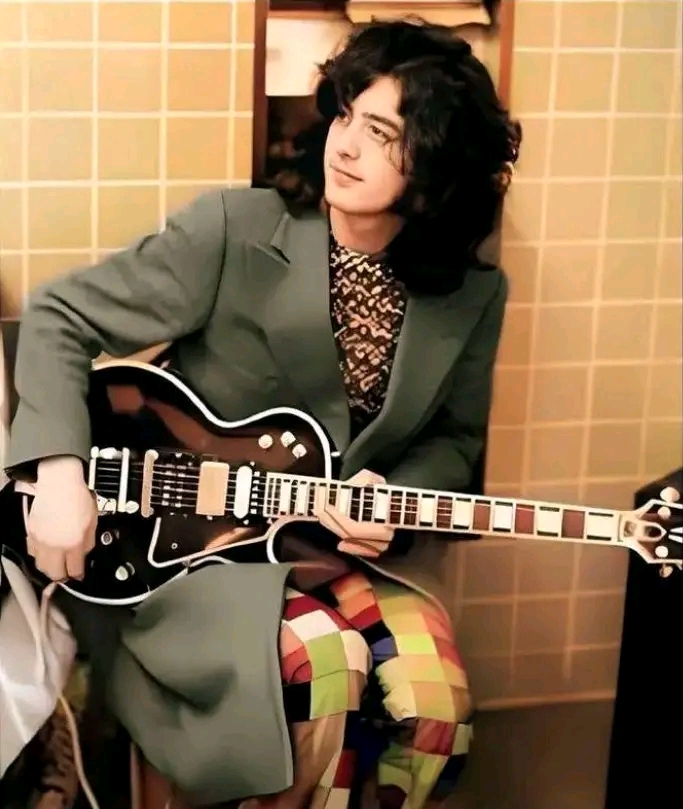**Jimmy Page: The Eternal Alchemist of Rock**
Even as the music world continues to evolve, Jimmy Page remains a towering figure—an architect of sound whose influence transcends generations, genres, and trends. Decades after Led Zeppelin’s final bow, Page’s signature guitar tone still echoes through concert halls, bedroom amplifiers, and streaming playlists, untouched by time and unmatched in power.
What makes Page so enduring isn’t just his technical prowess, though his command of the fretboard is legendary. It’s the atmosphere he creates—haunting, raw, and richly layered. From the thunder of “Whole Lotta Love” to the spectral beauty of “The Rain Song,” every note feels intentional, crafted with a deep reverence for both space and silence. His use of alternate tunings, backward echo, violin bows, and layered overdubs turned the guitar into something cinematic, something alive.
But Page’s genius extends beyond performance. As Led Zeppelin’s producer, he was a master in the studio—sculpting soundscapes with the precision of a conductor and the soul of a mystic. He understood not just how to play, but how to *place* a sound—how to create tension, then release it in a burst of raw emotion.
His legacy stretches across countless artists, from hard rock and heavy metal to indie and experimental genres. Modern guitarists cite him not just for what he played, but how he listened—how he built a wall of sound, then cracked it open with a single blues-infused phrase.
In an era of fleeting fame and digital shortcuts, Jimmy Page remains a symbol of artistry that defies shortcuts. He is both the shadow and the light in modern rock’s DNA—a timeless figure whose music continues to teach, challenge, and inspire.
He didn’t just bend strings. He bent time, space, and expectation—and music has never be
en the same.










